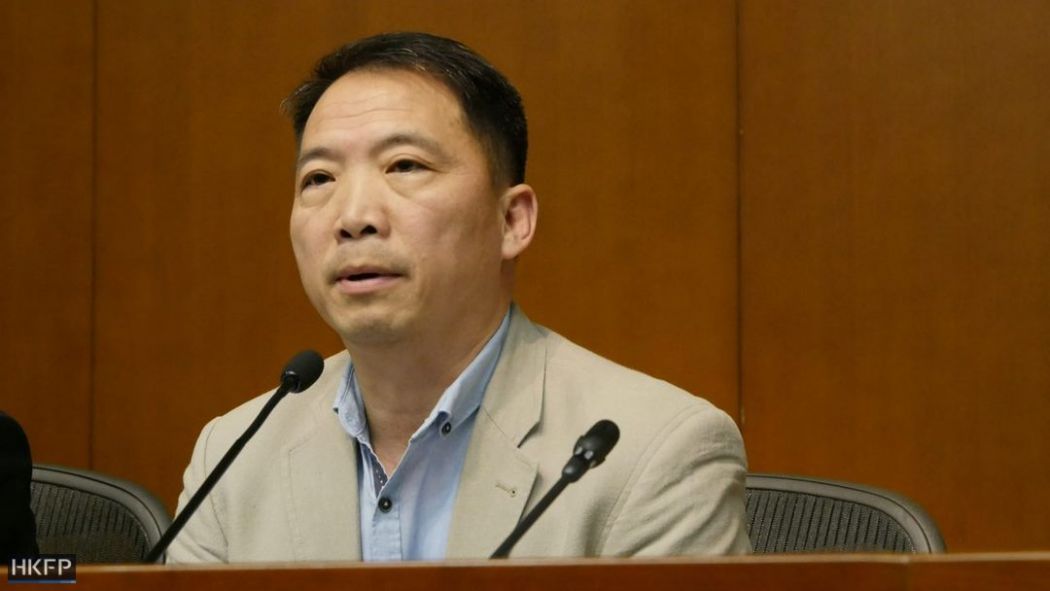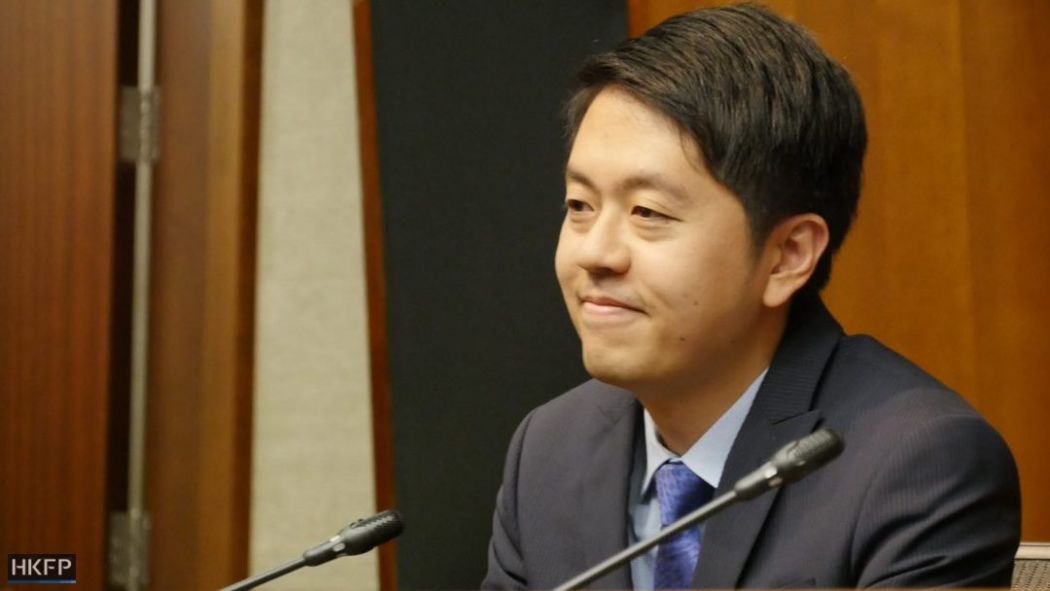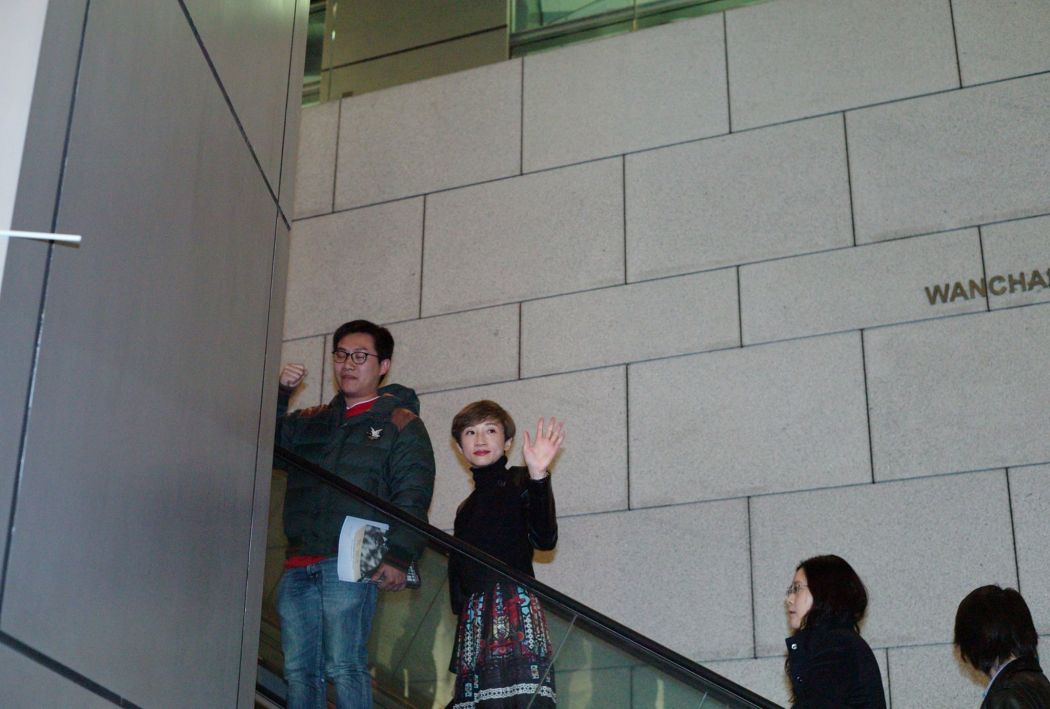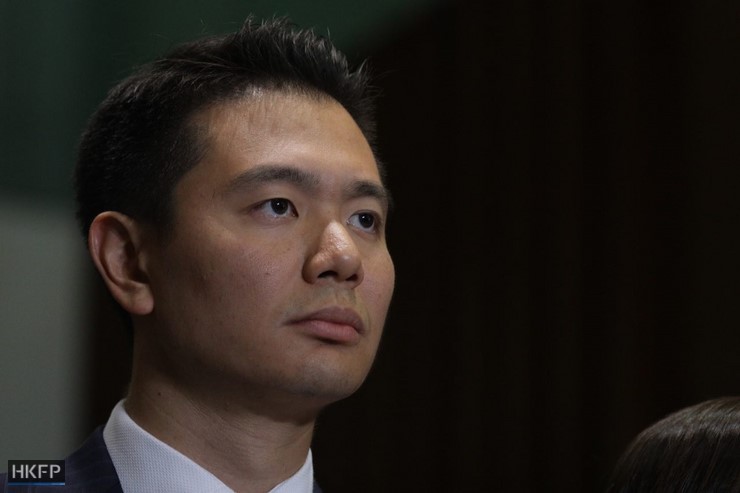Democratic Party chairman Wu Chi-wai has proposed that the next Hong Kong leader should pardon all participants in the 2014 pro-democracy Occupy protests, along with the eight police officers jailed or charged for incidents during the protests.
In an interview with Ming Pao published on Tuesday, Wu said Carrie Lam should take action to show her sincerity in mending rifts in society, such as forming an independent group to investigate the reasons why the protests started and find solutions.
Wu, a lawmaker, suggested that Lam should use Article 48 of the Basic Law, which stipulates that the chief executive can exercise powers “to pardon persons convicted of criminal offences or commute their penalties.”

According to his suggestions, everyone involved in the protests should be pardoned, including the seven police officers jailed for beating a protester, and retired officer Frankly Chu, who was charged with assault for allegedly hitting a pedestrian with a baton.
“The social confrontation starts from the political system… so political means must be taken,” Wu told the newspaper.
Wu later clarified on a Commercial Radio programme on Tuesday that it was his personal view and not the party’s position.
A spokesperson for the office of the Chief Executive-elect said it was not appropriate to comment on individual cases as relevant legal proceedings are underway.
On the day after she was chosen as Chief Executive, Lam said she was unlikely to issue any pardons relating to the Occupy protests.
During the protests in 2014, 955 protesters were arrested, while 48 were arrested after the protests. As of March 27, legal proceedings have been initiated against 225 of them.

Opposition from pro-democracy camp
Wu’s suggestion soon attracted opposition from his pro-democracy camp colleagues.
Democratic Party lawmaker Ted Hui said it was difficult to accept the pardon deal as it would contradict the rule of law.
Hui said the source of the rift in society was lack of trust in the government, because it was not democratically chosen.
“Even if a pardon can temporarily resolve social confrontation, it will not bring any benefit to the democratic movement in the long run,” he said in a statement.
“Social splits and failed governance are inevitable outcomes of an undemocratic system and society has to face this together. If a pardon is issued, it may in turn reduce pressure on the rulers in pushing forward democracy.”

Civic Party lawmaker Tanya Chan, one of the nine protesters who were recently charged, said she has “great reservations” about the proposal, and she will continue preparing for trial next month.
“Since the day I joined the civic movement, I knew that peaceful protesters may also be charged and face legal outcomes,” she said.
“The way for the new administration to show sincerity towards mending social rifts and rebuilding trust is to establish genuine universal suffrage.”
The 2014 decision by the Standing Committee of China’s top legislature stated that Hong Kong people could choose their leader with one-person-one-vote, but only after a nomination committee largely controlled by Beijing picked two to three candidates to face the public. The proposal sparked the Occupy protests.
Labour Party lawmaker Fernando Cheung said on a RTHK programme that the suggestion was “strange” in that the police officers were not prosecuted for political actions but criminal actions, and that even though the chief executive has the power to do so, they should not be pardoned.

Pro-Beijing camp opposition
In response to the suggestion, pro-Beijing lawmaker Regina Ip told Ming Pao that she would suggest that the pardon should be conditional on signing an agreement that they would only fight for democracy and conduct social movements without breaking the law.
Pro-Beijing lawmaker Holden Chow said the Occupy protests were serious incidents of collective action in breaking the law.
“Hong Kong must keep a just and fair legal system – it is necessary to prosecute Occupy protesters,” he said, adding that a pardon should not be issued for mending social rifts, because the legal system would take a serious hit.
Lawmaker Priscilla Leung said on a Commercial Radio programme on Tuesday that the founders of the protests should not be pardoned.
In 1977, then-governor Murray MacLehose issued a partial pardon protecting police officers – who had yet to be questioned or prosecuted – from arrest for potential corruption cases committed before that year following clashes between the police and the newly-formed Independent Commission Against Corruption.
